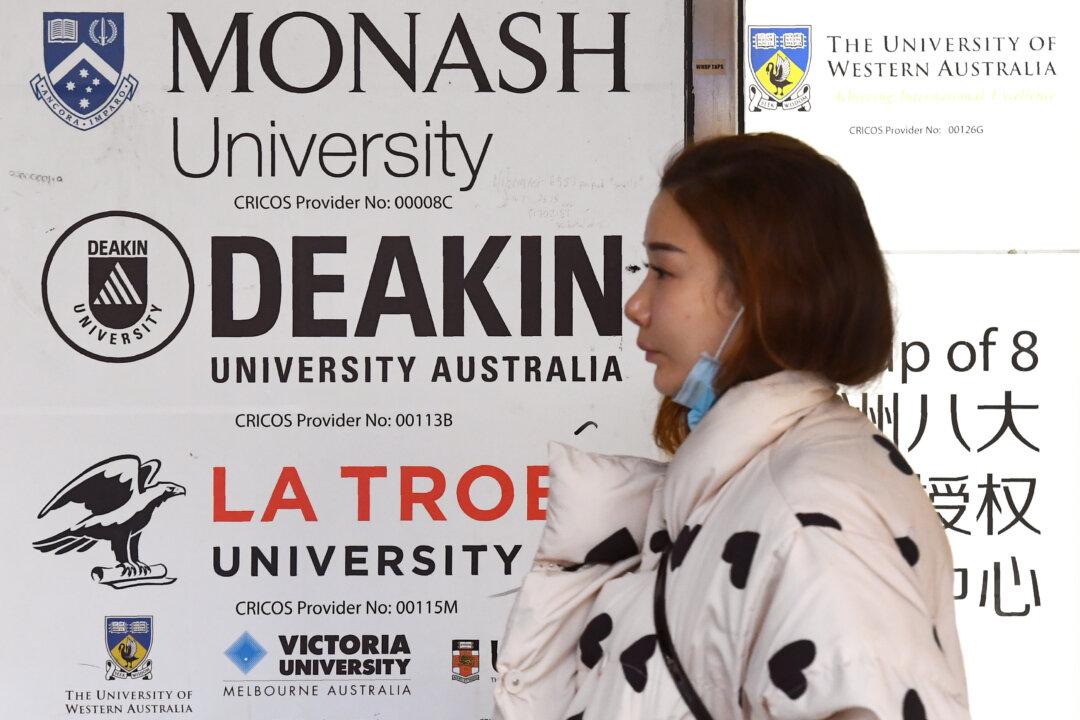CANBERRA—A new report by the Australian Strategic Policy Institute (ASPI) shows how the Chinese Communist Party (CCP) has been using illegal and underhanded methods to obtain research and technology from around the globe in its quest to become the world’s preeminent military power.
“The CCP views technological development as fundamental to its ambitions. Its goal isn’t to achieve parity with other countries, but dominance and primacy,” Joske wrote.
ASPI singled out the United States as having the highest number of CCP talent-recruitment stations—146 of them. Australia and Germany have the second-highest number of CCP talent-recruitment stations, with the two countries having 57 stations each.
The organisations running recruitment stations can receive as much as ¥200,000 (A$40,000) for each person they recruit, and as much as ¥150,000 (A$30,000) a year for general operation costs, the report stated.
Many recruits are given bountiful research funding and even new laboratories in a Chinese university and team of research staff.
Under the terms of the programs contract, the Chinese government owns the copyright of any research, inventions, patents or other intellectual properties produced by the academic for the duration of the agreement.
“The CCP treats talent recruitment as a form of technology transfer,” Joske stated in the report, noting that participants in the programs often collaborate on dual-use technologies with Chinese institutions that are closely linked to the CCP-led military People’s Liberation Army (PLA).
According to Joske, China views the talent-recruitment schemes like the Thousand Talents Program as the answer to its push to dominate future technologies and revive its military.
“The deepening of ’military-civil fusion' (a CCP policy of leveraging the civilian sector to maximize military power) means that China’s research institutes and universities are increasingly involved in classified defence research, including the development of nuclear weapons,” the report said.
Of concern to both Joske and Hamilton has been the engagements with Chinese state-owned defence conglomerate China Electronics Technology Group Corporation (CETC) which specializes in developing military electronics, drone swarms and radar system.
Currently, the University of Technology Sydney (UTS) has signed a $10 million partnership with the CETC to develop AI, Quantum Computing and Big Data technologies.
Surveillance Tech Used to Aid Human Rights Abuses
Amnesty International has identified the Xinjiang province of China as a hotbed for human rights abuses since the CCP initiated an anti-religious re-education campaign on the regions indigenous Islamic Turkic inhabitants, including Uyghurs, ethnic Uzbeks, Kazakhs and Kyrgyz.“When people elect a federal government, they elect it to look after our relationships with the rest of the world. They don’t elect state governments to do that or local Governments or universities to do that, they elect the federal government to do that. So this just make sure that everybody is heading in the same direction and can’t be picked off,” said Morrison.




